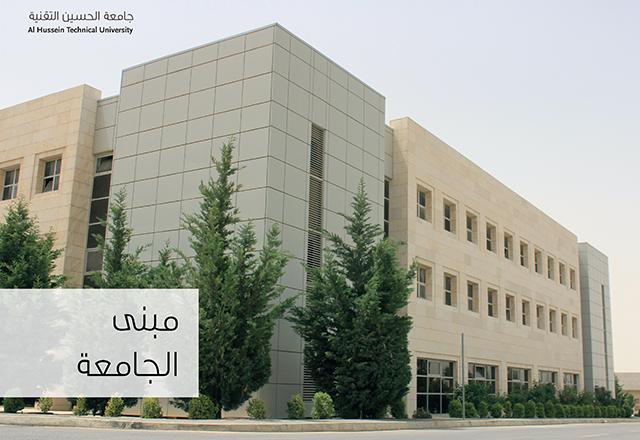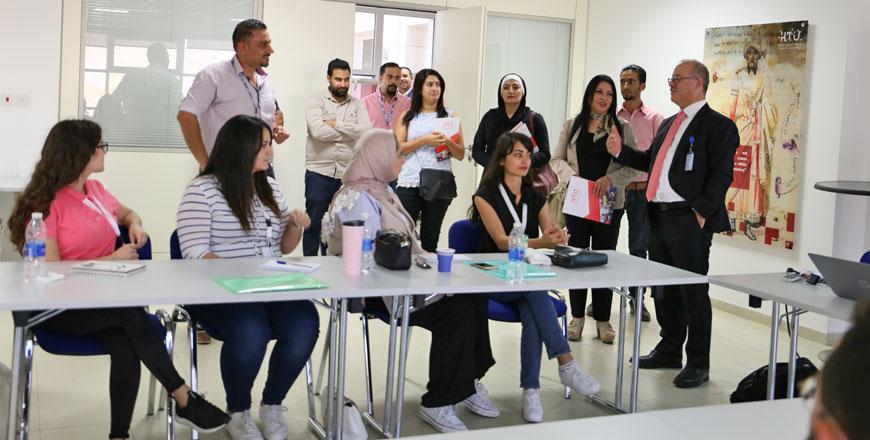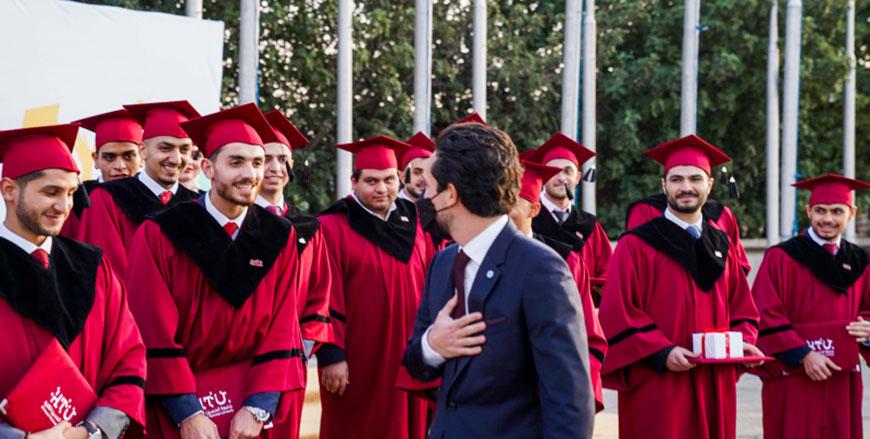You are here
Al Hussein Technical University seeks to prepare graduates with ‘quality technical skills’
By Dana Al Emam - May 27,2017 - Last updated at May 28,2017

The newly established Al Hussein Technical University is one of the initiatives of the Crown Prince Foundation (Photo courtesy of HTU)
AMMAN — The newly established Al Hussein Technical University (HTU) seeks to enhance the employability of graduates through study plans, which are set in partnership with industry and tailored to the needs of the job market, according to the university’s president.
The university is one of the initiatives of the Crown Prince Foundation (CPF) to support Jordanian youth’s pursuit of vocational, technical and applied education, according to the foundation's website.
In a recent interview with The Jordan Times, HTU President Labib Khadra said that the university seeks to provide students with “distinguished” technical education at the intermediate and bachelor levels, noting that applied, hands-on laboratory work will comprise at least 50 per cent of the overall study load.
While the titles of the programmes offered are similar to those at other universities, the difference lies in the idea that study plans at HTU will be “flexible and dynamic”, in order to accommodate “the changing needs of the job market”, Khadra noted.
Through a “strong” partnership with industries and the private sector, industrialists will take part in setting the study plans and engaging students in internships, he said, noting that some courses will be given by sector experts, rather than academics.
"The employability of graduates with quality technical skills is of utmost priority for the university," Khadra noted, acknowledging that technical education faces a great deal of social stigma, which considers this option as a “punishment” for low-achievers in the General Secondary Education Certificate Examination (Tawjihi).
To this end, the university will communicate with schools across the country to raise awareness about technical education and to encourage students to pursue their studies in the fields of science, technology, engineering and mathematics (STEM) disciplines.
The university operates under four pillars: the first is an applied, technical engineering degree that includes two years of studying and a year’s practical internship, while the second is a four-year applied bachelor programme in engineering.
Students enrolled in the first two pillars will not be separated during the first year of studying, and will be granted a high-degree of flexibility, through a system of “multi exits” that will allow them to enroll in the job market or pursue their studies abroad, based on agreements between HTU and universities in the UK, France and the US.
Students who exit the programme at certain phases will have the opportunity to resume studies at any time, Khadra said, noting that the university encourages students to finish their degrees.
The third pillar is professional development, community engagement and outreach, which will seek to up-scale the skills of STEM graduates of Jordanian public and private universities.
To this aim, the HTU will offer regular, intensive courses for four to five months in the English language, soft skills and technical training, based on the needs of the job market, in a bid to enhance their employability and address any weaknesses in certain skills.
The first training for telecommunication and computer engineering graduates will start on July 1, in coordination with international companies working in Jordan, Khadra said.
Meanwhile, the fourth pillar will focus on innovation, entrepreneurship and business acceleration, in order to equip students with skills on innovation ecosystems, intellectual property and commercialisation.
The university’s programmes are "highly intensive" in order to minimise unnecessary time wastage and to prevent tensions which are often related to free time, such as campus violence, according to Khadra.
Students willing to enroll at the university will undergo a placement test and an interview to evaluate their capacities in a manner that does not solely depend on Tawjihi scores, and to evaluate their English-language competency, he said.
While the board of trustees has not decided on the tuition fees yet, fees for the first pillar are estimated to be around JD50 per pillar credit hour and around JD100 per credit hour for those studying under the second pillar.
"The university is keen to encourage the enrollment of students from all governorates," said the president, adding that 30 to 40 per cent of seats will be allocated for scholarships for financially challenged students.
The location of the campus, at the King Hussein Business Park in Amman, entitles students to use the existing facilities they might need, he said, adding that the location offers students opportunities for direct communications with companies in the park for internships.
Teaching will start on October 1, in five programmes, with a maximum of 25 students in each programme.
Related Articles
AMMAN — The newly established Al Hussein Technical University (HTU) has started its second year with a “different roadmap” aimed at matching
AMMAN — HRH Crown Prince Hussein on Wednesday attended the graduation of the first class of Al Hussein Technical University (HTU), held at t
AMMAN — HRH Crown Prince Hussein on Monday visited Al Hussein Technical University (HTU) and had a firsthand look at its academic programmes


















